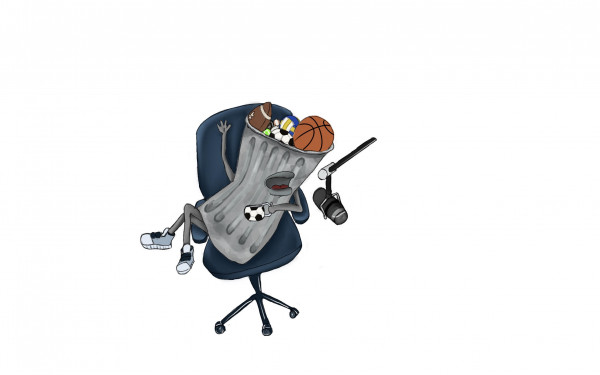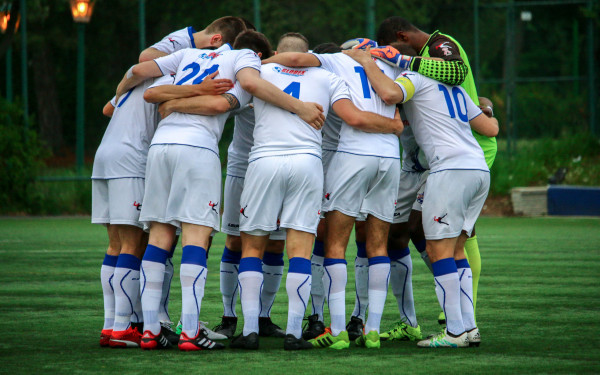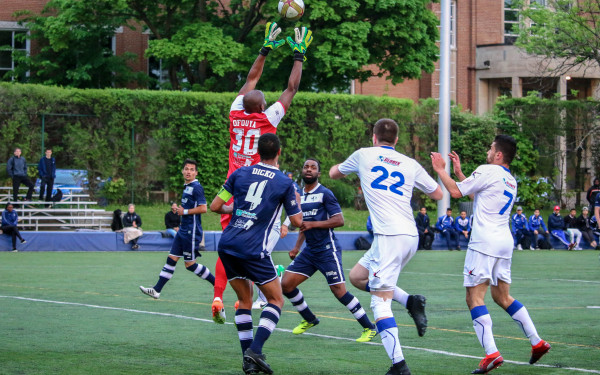The socialist past, present, and future of soccer
How class struggle laid the foundation for the world’s game
In August 2017, French soccer club Paris Saint-Germain committed to paying $420 million USD in transfer fees for just two players. This wasn’t the first insane expenditure from a club and it wasn’t the last, but it seemingly was the straw that broke the camel’s back.
Spending in Europe’s five biggest leagues has become increasingly dangerous, inflating the values of players and enabling clubs to charge what would’ve been world-record transfers fees just a few years ago for players who do not warrant such a price tag.
Given that the sport’s transfer market over the past 50 years has inflated to obscene heights, those with the deepest pockets have consistently found themselves higher up the pecking order. This is where the idea that soccer is a capitalist sport gained traction.
However, in order to truly understand the socialist and working-class history of soccer and how it saved the game on a number of occasions, you need only look at it’s very foundation: Back when Manchester United and Manchester City went by the names Newton Heath and Ardwick, years before Liverpool, Barcelona, or Real Madrid were even founded.
Soccer began as a game for school boys to stay active. As its popularity grew, society’s upper class began to formalize the rules, the most notable being the rule that you could not be paid to play the game. Unable to compete due to the physical and monetary demands of playing at the highest level without any kind of wage, clubs from working-class towns were struggling to find real success.
Towards the end of the 19th century, the game was at a crossroads. The Football Association (FA)—whose board members were all part of England’s upper class—vehemently refused to allow “professionalism” into the game as it would somehow cheapen the sport.
What it did in reality was ensure the sport’s only governing body at the time could stubbornly maintain its grip on a sport that would end up going nowhere without the support of the working class and its teams. After realizing the limited potential soccer had if catered solely to the whims of the wealthy, the FA finally allowed clubs to pay their players, setting off a series of events that would lead to the soccer we know today.
Soccer’s popularity truly skyrocketed in the 20th century. With professional and amateur leagues appearing all over Europe and South America en route to becoming the most widespread game on the planet, soccer ascended the sports world. It had now become a cultural phenomenon that fans would cling to for dear life.
As such, different clubs would represent their communities both in ideology and representation. For example, Spanish club Athletic Bilbao has maintained a policy since 1912 to only sign players born or raised in the Basque region in northern Spain and western France. Other clubs have embraced the working-class and socialist history of their origins by putting those ideals into practice.
Left-leaning supporters groups are commonplace in stadiums all over the world, but many have made it a core tenet of their—and by association their club’s—identity. Arguably the most famous is Celtic FC’s Green Brigade who can be seen at every game flying flags in support of Palestine and other oppressed communities as well as adopting an explicit anti-fascist and anti-imperialist stance.
Other clubs’ supporters groups have carved out their own leftist identities such as the Triangle of Brotherhood comprised of the fans from Greece’s AEK Athens, Italy’s AS Livorno and France’s Olympique de Marseille.
This phenomenon is not exclusive to European clubs, however. All over the world, supporter-owned clubs have not only been able to consistently operate at a high level, but have found tremendous amounts of success there. In Brazil, most clubs are owned by their members as not-for-profit organizations including all but six of the league champions from this century.
While less successful, fellow Brazilian club Esporte Clube Bahia saw the fans themselves take over the management of the club for nearly a decade. They were able to focus on creating a more inclusive environment for fans, combat racism, and bring a more sustainable environmental policy to the club.
Some clubs in Europe follow a similar model, with German clubs being prohibited from any single person or company owning a majority stake. This means that one of the biggest leagues in the world that includes Bayern Munich—one of the most successful clubs ever—has been able to thrive while not relying on massive financial takeovers in order to compete.
How do they do that? By simply ignoring the madness and not buying into the craze that is a hyper-inflated transfer market. Despite not spending hundreds of millions every year, they are consistently ranked amongst the best teams in Europe by recruiting locally and sticking to their own philosophy rather than going after the most expensive stars.
That philosophy is also what led to a resounding rejection of an invitation to join a league that would undermine hundreds of clubs and threaten thousands of jobs.
In 2021, a breakaway competition named the European Super League was presented, featuring some of the top clubs and players in the world. This in turn created an existential threat for many professional leagues and clubs all over Europe due to the arrival of a $5 billion USD investment from American bank JP Morgan going to the already massively wealthy few clubs at the top of the game.
The response was nothing short of overwhelming, coming from every corner of Europe. In the face of the most blatant attempt at a capitalist takeover of soccer, fans from all over united in protest and sent a definitive message, sending most clubs back to reconsider their involvement.
While it’s easy to point at inflated transfer fees and salaries, surging ticket prices, and greed from some of the top clubs in the world as examples of late-stage capitalism corrupting soccer, it’s important to remember that the very history of socialism itself is rooted in anti-capitalist struggle.
There are thousands of professional clubs and significantly more at the amateur level around the world. Only an infinitely small percentage of soccer could be characterized as capitalist and an even smaller portion as greedy, they just get the most publicity. The rest of the game is simply regular people trying to make a living by doing what they love. The rest belongs to us, the people.
This article originally appeared in Volume 44, Issue 8, published January 16, 2024.







3_600_375_90_s_c1.jpg)